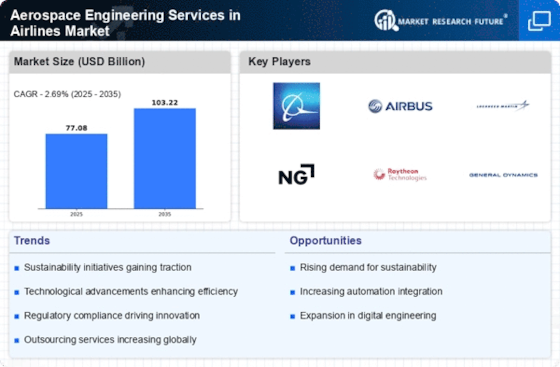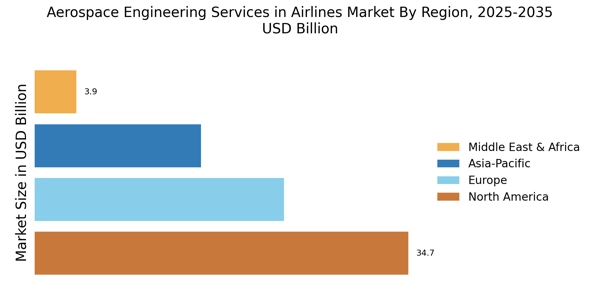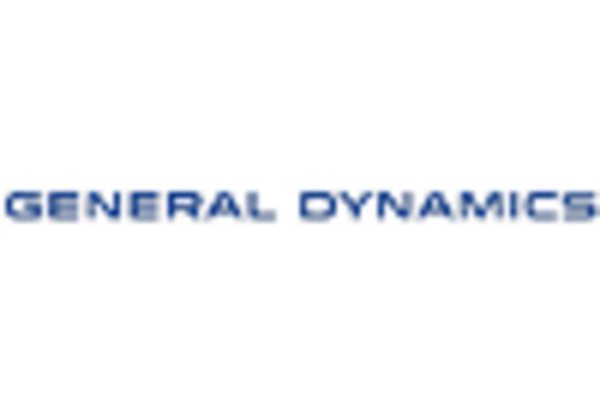Emerging Markets
Emerging markets are becoming a significant driver in the Aerospace Engineering Services in Airlines Market. Countries with developing economies are expanding their aviation sectors, leading to increased investments in new aircraft and engineering services. As these markets grow, they present opportunities for aerospace engineering firms to offer their expertise in fleet management, maintenance, and regulatory compliance. The rise of low-cost carriers in these regions is also contributing to the demand for efficient engineering solutions. As airlines in emerging markets seek to establish competitive advantages, the need for specialized aerospace engineering services is likely to grow, fostering industry expansion.
Regulatory Compliance
Regulatory compliance remains a critical driver in the Aerospace Engineering Services in Airlines Market. Airlines are subject to stringent regulations regarding safety, emissions, and operational efficiency. Compliance with these regulations necessitates ongoing engineering services to ensure that aircraft meet the required standards. The International Civil Aviation Organization (ICAO) and various national aviation authorities impose regulations that require regular audits and updates to aircraft systems. As regulations evolve, airlines must invest in aerospace engineering services to adapt their fleets accordingly. This ongoing need for compliance not only ensures safety but also enhances the reputation of airlines, thereby fostering customer trust and loyalty.
Focus on Fuel Efficiency
A growing emphasis on fuel efficiency is a prominent driver in the Aerospace Engineering Services in Airlines Market. Airlines are increasingly pressured to reduce operational costs and minimize their environmental impact. This has led to a heightened focus on developing more fuel-efficient aircraft and retrofitting existing fleets with advanced technologies. Aerospace engineering services play a vital role in this transition, providing expertise in aerodynamic design, lightweight materials, and engine optimization. As fuel prices fluctuate and environmental regulations tighten, the demand for engineering services that enhance fuel efficiency is expected to rise, further propelling the growth of the industry.
Rising Air Travel Demand
The Aerospace Engineering Services in Airlines Market is significantly influenced by the rising demand for air travel. As economies grow and disposable incomes increase, more individuals are opting for air travel, leading to a higher demand for new aircraft and maintenance services. According to industry forecasts, air traffic is expected to double over the next two decades, necessitating an expansion of airline fleets. This surge in demand compels airlines to invest in aerospace engineering services to ensure their fleets are capable of meeting passenger expectations while adhering to safety and efficiency standards. Consequently, this trend is likely to stimulate growth in the aerospace engineering sector.
Technological Advancements
The Aerospace Engineering Services in Airlines Market is experiencing a surge in technological advancements, particularly in areas such as artificial intelligence, machine learning, and automation. These innovations are enhancing operational efficiency and safety in aircraft design and maintenance. For instance, predictive maintenance powered by AI can reduce downtime and operational costs significantly. The integration of advanced materials and manufacturing techniques, such as 3D printing, is also transforming the industry, allowing for lighter and more fuel-efficient aircraft. As airlines seek to optimize their fleets and reduce emissions, the demand for cutting-edge aerospace engineering services is likely to increase, driving growth in this sector.

















